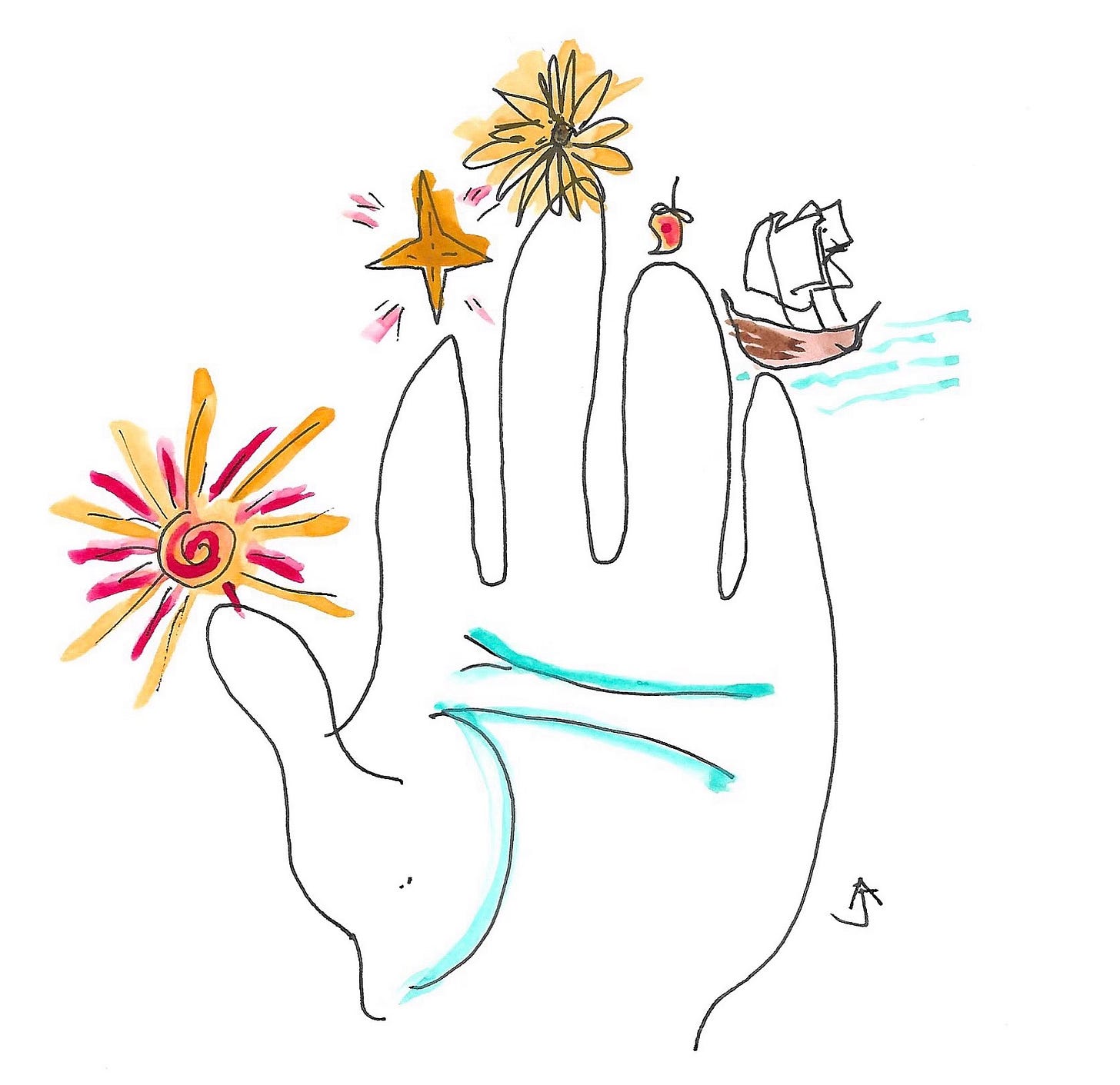A couple of days a week, I work helping students at an Oxford college with their essay writing. It’s fun and, for the most part, quite relaxing, especially since I don’t actually have to be someone in my late teens or early twenties, or write weekly essays any longer. But lately, I have been noticing that quite a lot of them use AI tools, often Chat GPT, to write their essays. This is particularly true of the non-native-English speakers, though I suspect it’s not just them.
Unlike a lot of writers, I neither think ChatGPT is the devil, nor the answer to my prayers. It doesn’t appeal to me, for instance, to use AI prompts to create an illustration for these pieces, even though I’m sure they’d look more polished than the ones I draw or paint myself. I’m vaguely offended, every time I dislike the weather and go on Pinterest to search for pictures of beaches, by the images of sparkling turquoise water right lapping against the steps of a bleached stone house somewhere that doesn’t exist – if it did, I’d remember the name, and daydream about going there some day, but fantasising about a third-hand generic creation is just edging into desperate, not to mention a little dull. I don’t use AI to write, because I like writing.
But I’m also not that alarmed about AI stealing my creativity or whatever, even though I did check the database of books that Mark Zuckerburg’s Meta has absorbed into its voracious belly to ‘train itself’, and my four novels are in there. I was vaguely amused. What could they possibly want with them?
A year ago I was a judge on a novel prize. Most of the thirty or forty titles I read were appealing in their own ways. It was obvious that the writer had been impelled by something – wanting to use language a certain way, to tell a story about specific people, even to create something in a genre they liked reading. One, a romance, actually made me wonder if it had been written by an, er, automated entity. It was so generic – the couple in it lived in a generic house, had generic conversations and problems, and so on. It was strangely difficult to read, for something so pre-digested. The novel didn’t make it onto the shortlist, because there were better books, but it did make me think that if human beings are comfortable being this generic, we deserve AI. Maybe AI is mirroring the places where we’ve become boring for fear of being disliked.
When I’ve asked students if they used AI tools to write their essay, and then suggested they do it without, some become uncertain and anxious, and a couple recently have just been angry. I spent some time and energy explaining this suggestion to each – paragraphs written by AI sound, to my ear, weirdly atonal; AI tools at this point are more focused on generating plausible sections of text than putting anything clearly, so there is a muffled quality to the language; their English is, I can tell from our conversation, quite good enough for them to write the essay themselves; it’s okay to make a small linguistic mistake. Anglophone students do it all the time. In fact, several times I’ve come across quite incomprehensible sentences written by native English speakers, had them read them aloud, wondered what they meant, and eventually a student has said a bit sheepishly, ‘I guess I was trying to make it sound more academic’.
Maybe it’s a generational thing. I was born in 1978 and feel like I spent my childhood and youth being told continually that I didn’t know anything, didn’t understand anything, and couldn’t do anything. I gritted my teeth and kept going, dreaming of the day when I’d be able to consider myself a fully-fledged, capable adult. I guess the truth sank in about ten years ago, since when things have been a little more relaxed. Perhaps for those who grew up being praised and affirmed (seriously, what’s that like? Write a comment and tell me) the notion of making a mistake and losing face is unbearable.
When I was young everyone I knew was, of course, obsessed with their own failings, but on the other hand, those failings seemed so pervasive that it was never imaginable that one day we’d be free of them, living our most radiant lives. Maybe that isn’t the case any more, and the abundance of ‘tools’, whether AI, a 27-step makeup routine, or ‘counting your macros’ (your what?) offers, nay demands, that the affluent jump to it and self-actualise on the hour. That sounds fucking exhausting, and I’m not particularly enjoying the results. Instead, here’s an invitation: do something badly. Write a story. Read a book. Draw something. Try. Notice that the result is poor. Try again, but don’t imagine that any kind of perfection, completion, or irreproachability is available. People will be disappointed in you. People will prefer other people to you sometimes. You will be rejected. Accidentally, while tired one morning, you will pour coffee all over your kitchen, maybe including your own foot. Reimagine yourself as a surprisingly charming clown who has very little control over your own thumbs. This is a human life, and it is yours.





Perhaps for those who grew up being praised and affirmed (seriously, what’s that like?) nice + 25 years of writers block 🙂